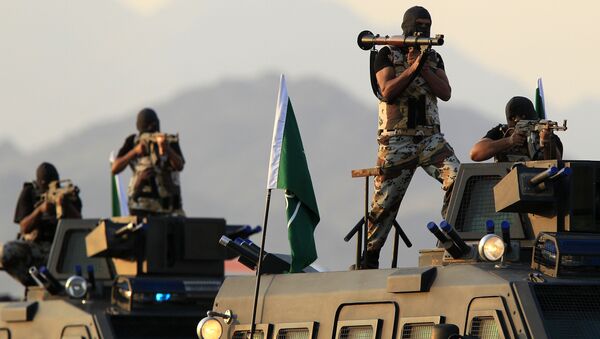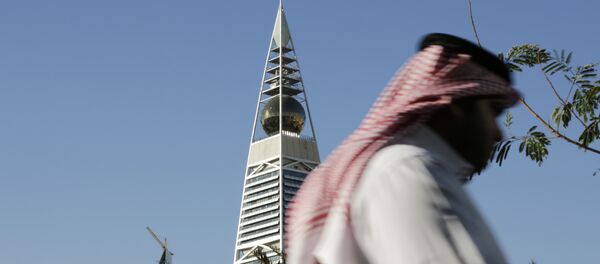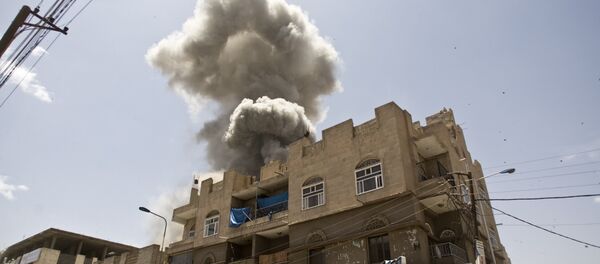Stratfor analyzed the possible consequences of the participation of "new faces" — members of the so-called Islamic military coalition, which was recently announced by Saudi Arabia.
According to Sratfor, "an end to the Syrian conflict is nowhere in sight, and more countries are being drawn into the fray."
"Responding to US pressure and keen to have more influence on the direction of the Syrian civil war, the Saudis are attempting to coordinate a deployment of troops on the ground in Syria alongside their allies," Stratfor said.
It referred to the United States and Turkey as the countries which are also interested in the deployment of Arab forces in Syria. As for Washington, Stratfor said, it has repeatedly been criticized over "a perceived lack of progress in the war" against Daesh, which is why the White House currently wants to draw additional forces in the region.
For Ankara, the presence of Riyadh coalition forces could help to legitimize Turkey's participation in the Syrian conflict in the eyes of its Arab neighbors. In addition, the Turks are concerned about the ever-increasing presence of Russia and Iran in the region, which prods Turkey to "seek additional cover in operations that involve a wider international coalition," according to Stratfor analysts.
"Nevertheless, as Arab states become more involved in the Syrian civil war, they could undermine any attempt at a united front against the Islamic State in Syria," they said.
According to Stratfor, the new Islamic anti-terrorism coalition cannot be called united due to the absence of Malaysia, Indonesia Pakistan, Iran and Syria in this alliance.
It is safe to say, therefore, that regional and global participants pursue quite different goals in the Syrian conflict, and although more and more countries have signaled their readiness to increase their contribution to the fight against Daesh, "their disparate positions will continue to undermine the broader effort," according to Stratfor.
"Core participants in the conflict are fixated primarily on enemies other than Daesh," the global intelligence company concluded.




